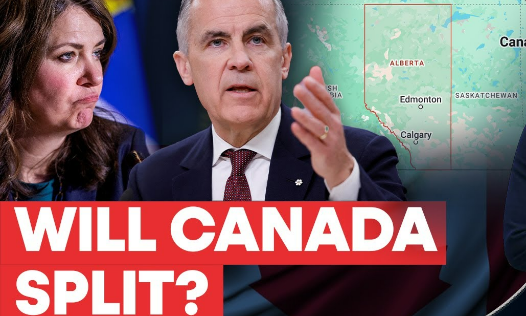Payment is being processed. Please do not refresh or close this page until your payment is complete.
 Book an Appointment
Book an Appointment

Alberta is poised to face a pivotal moment in 2026 as Premier Danielle Smith has announced the possibility of a referendum on the province's separation from Canada. This development stems from escalating tensions between Alberta's conservative leadership and the federal Liberal government in Ottawa, particularly over energy and environmental policies.
What Sparked the Referendum Proposal?
Premier Smith stated that if a citizen-led petition garners sufficient support, a referendum on Alberta's separation will be included in the 2026 ballot. The proposed legislation would lower the threshold for such a petition, requiring signatures from 10% of eligible voters from the previous election within 120 days . While Smith personally opposes secession, she emphasizes the importance of democratic processes and the right of Albertans to decide their future.
Historical Context and Federal Response
Alberta's grievances with the federal government are not new. The province, rich in oil and gas resources, has long felt marginalized by federal policies perceived as detrimental to its economic interests. This sentiment has fueled past movements for greater provincial autonomy, echoing Quebec’s historic referenda. However, Canada's Clarity Act requires a clear majority vote and parliamentary approval for any province to consider secession .
In response to the growing separatist sentiment, newly elected Prime Minister Mark Carney has initiated talks with Premier Smith to address Alberta’s economic concerns. Carney emphasized cooperation and national unity, stating, "We're both focused on bringing down the cost of living and increasing opportunities in the energy sector for hard-working Albertans." Smith described their conversation as "a positive first step" .
Public Opinion and Political Implications
Recent polls indicate that while a majority of Albertans prefer remaining part of Canada, there is a significant portion advocating for separation. Only about 10% favor union with the U.S. . Political analyst John Soroski noted that while separation is unlikely, the threat may serve as a strategic tool similar to Quebec’s historic referendums .
The potential referendum has ignited debates across the nation, raising questions about Alberta's future within Canada and the unity of the federation. As the 2026 vote approaches, the situation remains fluid, with both provincial and federal leaders navigating a complex political landscape
Source :- https://ctcnews.ca/2025/05/06/alberta-separation-referendum-2026/